#Self Assessment Tax Return
Text
Case Study: HMRC Enquiry Notice Deemed Out of Time
In the recent case of Richard Monks v HMRC [2023] UKFTT 853 (TC), the First-tier Tribunal (FTT) made a significant ruling regarding the validity of HMRC’s enquiry into the taxpayer’s tax returns. This article explores the background of the case, the FTT decision, and the implications it holds for taxpayers facing similar circumstances.
HMRC TAX DISPUTES LEGAL ADVICE & DEFENCEOur lawyers have a…

View On WordPress
#Advice for Taxpayers#Appeals#enquiry notice#First Tier Tax Tribunal#HMRC#HMRC assessment#HMRC Tax Assessment#HMRC Tax Disputes#Self Assessment Tax Return#tax return
0 notes
Text
Unraveling the Mysteries of PAYE: A Comprehensive Guide
New Post has been published on https://www.fastaccountant.co.uk/paye-a-comprehensive-guide/
Unraveling the Mysteries of PAYE: A Comprehensive Guide

The article today is all about a very important, yet often misunderstood concept – Pay As You Earn, or for short. Understanding how PAYE works can save you quite a bit of stress come tax time, and it can even help you plan your finances better. So, let’s jump right in!
The Basics of PAYE
PAYE, or Pay As You Earn, is a method of tax collection used by Her Majesty’s Revenue and Customs (HMRC). It’s pretty straightforward – as you earn income, tax is automatically deducted and sent to HMRC. This happens each time you’re paid, whether that’s weekly, monthly, or otherwise. PAYE is applied to most types of income from employment, including wages from your job and most pensions.
But why should you care about PAYE? Simple. It’s the system that determines how much income tax is deducted from your pay. The better you understand it, the better you can manage your financial planning.
How It Works: Step-by-Step Breakdown
At its core, PAYE is about calculating the correct amount of income tax to deduct from your earnings. Your employer plays a big role in this. They use your tax code to figure out how much to deduct from your wages before they hand over the net pay.
The tax code itself is issued by HMRC, and it’s designed to reflect your tax-free personal allowance – the amount you can earn before you start paying tax. If your tax code changes, your PAYE deductions will likely change too.
PAYE and Self-Assessment
It’s a common misconception that if you’re self-employed, PAYE doesn’t apply to you. This is not strictly true! Even if you’re your own boss, you might need to send a Self-Assessment tax return, and PAYE could still be relevant to your other income from employment related activities where tax is deducted at source.
PAYE and Self-Assessment may seem like strange bedfellows, but they do intersect. If you’re both employed and self-employed, for example, you may become subject to both. In this case, your PAYE income and deductions will be important details for your Self-Assessment return.
The Role of HMRC in PAYE
HMRC is like the conductor of the PAYE orchestra. They oversee the system, issue tax codes, and collect the tax that’s been deducted by employers. Your interactions with HMRC might include checking your tax code or making sure deductions from you pay are correct.
Remember, your PAYE history forms part of your tax record. So if something doesn’t look right, or you have any questions about Pay as you earn, it’s a good idea to contact your employer or HMRC. They’re there to help you understand and resolve any issues.
Potential Issues and How to Resolve Them
Even with the best-laid plans, issues can arise with PAYE. For example, you might have the wrong tax code, leading to incorrect PAYE deductions. Or perhaps you’ve started a new job, and there’s a delay in applying the correct tax code.
In most cases, these issues can be resolved by contacting HMRC directly. They can help you confirm your tax code, understand your deductions, and resolve any discrepancies. If things get complex, don’t hesitate to seek advice from a tax professional.
Optimizing Your Financial Planning
Understanding PAYE is more than just knowing what chunk of your wage goes to the taxman. It’s a key tool in your financial planning toolkit. Once you know how your deductions from your salary or wages are calculated, you can budget more accurately, because you’ll know what your take-home pay will be.
PAYE is also a big player in retirement planning. Your pension contributions may be made through a PAYE scheme, so it’s worth understanding how this will affect your income now and in retirement.
Conclusion
We’ve covered quite a bit of ground, haven’t we? From the basics of PAYE to its impact on your finances, I hope this guide has shed some light on the mysteries of PAYE. Remember, understanding PAYE isn’t a one-and-done deal. It’s an ongoing journey, just like your financial planning.
Frequently asked questions
Q: What is a tax code?
A: A tax code is used by HMRC to your employer or pension provider to work out how much Income Tax to take from your pay or pension.
Q: How is PAYE calculated?
A: It is calculated based on your income, using your tax code and official tax rates in operation.
Q: What if I have the wrong tax code?
A: If you believe your tax code is wrong, you should contact HMRC. They can help you to resolve this issue.
Remember, when in doubt, ask! If you have any questions or experiences with that you’d like to share, pop them in the comments.
#Employer Obligations#Income Tax#Pay As You Earn#PAYE#PAYE Deductions#PAYE for Self-Employed#Self Assessment Tax Return#Tax Codes
0 notes
Text
Unraveling the Mysteries of PAYE: A Comprehensive Guide
The article today is all about a very important, yet often misunderstood concept – Pay As You Earn, or for short. Understanding how PAYE works can save you quite a bit of stress come tax time, and it can even help you plan your finances better. So, let’s jump right in!
The Basics of PAYE
PAYE, or Pay As You Earn, is a method of tax collection used by Her Majesty’s Revenue and Customs (HMRC). It’s…

View On WordPress
#Employer Obligations#Income Tax#Pay As You Earn#PAYE#PAYE Deductions#PAYE for Self-Employed#Self Assessment Tax Return#Tax Codes
0 notes
Text
Best Accountant for Landlord
Do you need help with your landlord-tenant income tax relations? We offer accountant for landlords who also want to keep their accounting records up to date. We'll take care of all the bookkeeping, filing, and reporting tasks that are too time-consuming or tedious for busy landlords while making sure they comply with all IRS regulations. Our services are designed to free up time so you can focus on running your business and providing great service to your tenants.
#Accountant for Landlord#Best Accountant for Landlord#Buy to let accountant#Capital gains tax on shares#Capital gains tax on property#Self assessment tax return
0 notes
Text
PAYROLL SERVICES INCLUDING OUTSOURCED PAYROLL MANAGEMENT
It's crucial to manage payroll in a business. It entails overseeing a business's finances, human resources, and personnel. If payroll administration services are offered, there is a solid working relationship between the company and the employees. Employees are motivated to work more in their given tasks by the company's strong financial situation.
Any business, including both startups and large corporations, needs a professional payroll administration system solution. The current shifting corporate environment makes it difficult to provide efficient management services. Here are a few of the most crucial tactics for maintaining the efficiency of your payroll services.
A paperless payroll system should be developed:
The digital era has several benefits, including database management systems and computerised transactions. Large data sets are challenging to manually manage, which increases the likelihood of errors. So automatic payroll transfers are a necessity for reliable payroll services. In addition to these benefits, an electronic payroll system safeguards company data and facilitates calculations and compensation payments.
Including a variety of payment options: One way to guarantee efficient payroll administration services is to have a standard pay schedule for all of your employees. You may have encountered companies that pay their employees according on whether they are contract, long-term, or freelance workers. Payroll administration is simplified and error-free when all employees in a company agree on a single pay schedule.
Install the required software:
Making appropriate payroll decisions requires the use of digital tools. The choice of the proper software for your company's needs and budget, nevertheless, can present a problem. There are several software options available, or you may develop software that is simple to integrate into the payroll administration process at your business. You may be sure that this technological solution will satisfy all of your financial needs.
Support for payroll software: You must make sure that your accounting system and your payroll administration system, such as SAP, are compatible. The two systems need to work together.
Utilize the most recent facts you have at your disposal:
Payroll services may only be offered if you are knowledgeable with the most recent laws and rules pertaining to employees, gratuity standards, EPF, medical reimbursement, and other essential salary components. Your employees will be happy, and you can determine their pay accurately.
paid for by third parties
A sound general principle for building an extensive payroll management procedure is to use outsourced payroll services. Yes, you're right. Due to Covid-19's growth, payroll outsourcing has become the norm in recent years. By outsourcing payroll services, you can save time, money, and even lessen your workload and stress. These companies that offer outsourced payroll services make use of both technological and financial know-how.
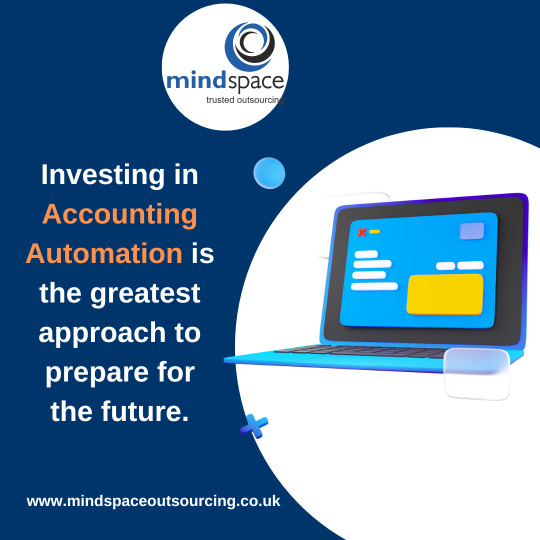
#bookkeeping services for business#accountancy and bookkeeping services#self assessment tax return#payroll outsourcing services
0 notes
Text
Importance of Accuracy in Tax Return Self-Assessment
Tax return self-assessment is an essential duty for both individuals and corporations. Meeting legal requirements is only one aspect of it; other goals include making sure the tax system is equitable and maximizing financial results.
Read this blog to know more.
0 notes
Text
HMRC Self Assessment & Tax Return
#hmrc#self assessment#tax services#tax relief#tax returns#tax accountant#taxes#tax advisory#london#finance#accounting#uk
0 notes
Text
HMRC's Assessment Powers
HM Revenue & Customs (HMRC) has the power to raise tax assessments and may only exercise these powers to aid tax compliance and must do so fairly in accordance with established guidelines. Understanding HMRC’s assessment powers and the key stages is crucial in order to be in a position to successfully challenge any such assessment, as our team of tax litigators often do before the Tax…
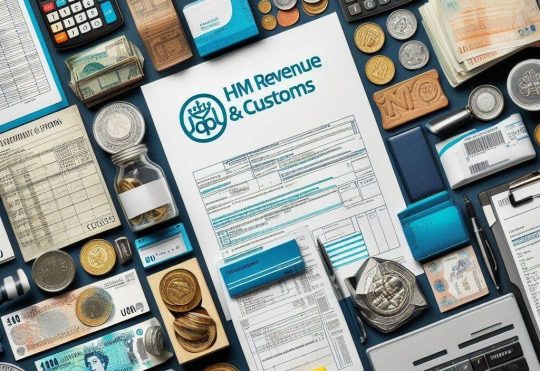
View On WordPress
#capital gains#Corporate Tax#Corporation Tax#HMRC#HMRC Investigations#HMRC Tax Assessment#HMRC Tax Disputes#Income Tax#Self Assessment#Self Assessment Tax Return#Unpaid Tax#VAT
0 notes
Text
A Step-by-Step Guide: How to File Your Self Assessment Tax Return
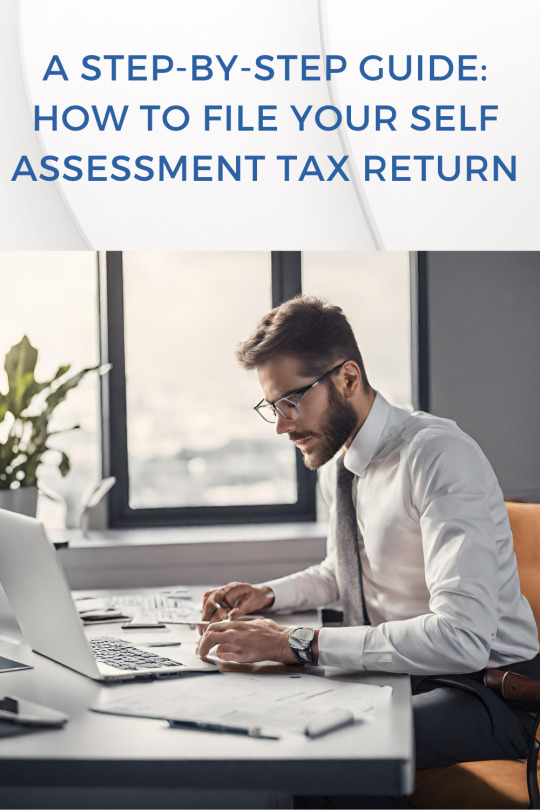
Filing your self assessment tax return can be a daunting task, but it is a necessary one if you are self-employed or receive income from other sources. In this comprehensive guide, we will walk you through the process of filing your self assessment tax return, step by step. By the end of this article, you will have a clear understanding of what is required and how to avoid common mistakes.
Who needs to file a self assessment tax return?
Not everyone is required to file a self assessment tax return. If you are an employee and your income is solely from your salary, taxes are usually deducted automatically through the PAYE (Pay As You Earn) system. However, if you are self-employed, a sole trader, a partner in a partnership, a company director, or have income from other sources such as rental properties or investments, you will need to file a self assessment tax return.
Filing a self assessment tax return allows you to declare your income and expenses, claim any tax deductions or reliefs you may be entitled to, and calculate the amount of tax you owe. It is important to determine whether you fall under the category of individuals who need to file a self assessment tax return to avoid any penalties or fines.
Benefits of filing a self assessment tax return
Filing a self assessment tax return has several benefits, even if you are not required to do so. Firstly, it allows you to ensure that you are paying the correct amount of tax based on your income and expenses. By accurately reporting your financial details, you can avoid overpaying or underpaying taxes.
Secondly, filing a self assessment tax return provides an opportunity to claim tax deductions and reliefs. If you are eligible for any tax breaks, such as business expenses or charitable donations, you can offset these against your taxable income, potentially reducing your overall tax liability.
Additionally, filing a self assessment tax return can help you build a comprehensive financial record. This can be useful for various purposes, such as applying for loans or mortgages, as it demonstrates your income and financial stability.
Important dates and deadlines for self assessment tax returns
Before diving into the process of filing your self assessment tax return, it is crucial to be aware of the important dates and deadlines. The tax year in the United Kingdom runs from April 6th to April 5th of the following year. Here are some key dates to keep in mind:
October 5th: Deadline for registering for self assessment if you are self-employed or have other untaxed income.
October 31st: Deadline for filing a paper tax return.
January 31st: Final deadline for filing your self assessment tax return online and making any tax payments.
It is advisable to start preparing your tax return well in advance to ensure you have enough time to gather all the necessary documents and information. Waiting until the last minute can lead to unnecessary stress and potential mistakes.
Gathering the necessary documents and information
Before you begin the process of filing your self assessment tax return, it is essential to gather all the necessary documents and information. This will help streamline the process and ensure you have accurate data to report on your tax return. Here are some key documents and information you may need:
Personal information: Your National Insurance number, Unique Taxpayer Reference (UTR), and contact details.
Income details: Details of all your sources of income, including self-employment income, employment income, rental income, dividends, and interest.
Expense records: Receipts and records of any allowable business expenses, such as office supplies, travel expenses, and professional fees.
Pensions and benefits: Details of any pensions, state benefits, or other taxable income.
Tax documents: P60 forms from your employer and any other relevant tax documents, such as P45 or P11D.
By gathering these documents and information beforehand, you can ensure a smooth and accurate filing process.
Step 1: Registering for self assessment
The first step in filing your self assessment tax return is to register for self assessment with HM Revenue and Customs (HMRC). If you are self-employed or have other untaxed income, you are required to register by October 5th of the tax year following the year in which you became liable for self assessment.
To register, you will need to visit the HMRC website and create a Government Gateway account. Once you have registered, you will receive a Unique Taxpayer Reference (UTR) and be able to access the online self assessment system. It is important to register as soon as possible to avoid any penalties for late registration.
Step 2: Calculating your income and expenses
Before completing your self assessment tax return, you need to calculate your income and expenses for the tax year. This involves gathering all the relevant financial information and determining your taxable income.
Start by compiling all your income sources, including self-employment income, employment income, rental income, dividends, and interest. Ensure you have accurate records and supporting documentation for each source of income.
Next, deduct any allowable business expenses from your income. These may include office rent, utilities, travel expenses, professional fees, and other costs directly related to your business. Keep in mind that not all expenses are allowable, so it is important to refer to HMRC guidelines or consult a tax professional if you are unsure.
Once you have calculated your taxable income, you can determine the amount of tax you owe. This can be done using the tax rates and allowances applicable to your income bracket. HMRC provides online calculators and resources to help you with this process.
Step 3: Completing the self assessment tax return form
Now that you have gathered all the necessary documents and calculated your income and expenses, it is time to complete the self assessment tax return form. HMRC provides an online system called "Self Assessment" where you can complete and submit your tax return electronically.
The online form is divided into sections, each corresponding to different types of income and expenses. It is important to complete each section accurately and provide all the required information. The form will guide you through the process, asking relevant questions based on your individual circumstances.
As you complete each section, double-check your entries for accuracy and ensure you have included all the necessary details. Mistakes or omissions can lead to delays in processing your tax return or even penalties for incorrect filing.
Step 4: Submitting your self assessment tax return
Once you have completed the self assessment tax return form, it is time to submit it to HMRC. If you are using the online system, you can submit your tax return electronically. The system will provide a confirmation once your tax return has been successfully submitted.
If you prefer to file a paper tax return, you must do so by October 31st. However, it is recommended to file your tax return online as it is faster, more secure, and provides instant confirmation of receipt.
After submitting your tax return, HMRC will calculate the amount of tax you owe based on the information provided. You will receive a tax calculation (also known as a "tax calculation letter") outlining the amount due. It is important to review this calculation to ensure its accuracy.
Common mistakes to avoid when filing your self assessment tax return
Filing a self assessment tax return can be complex, and there are several common mistakes that individuals make. By being aware of these mistakes, you can avoid them and ensure a smooth filing process. Here are some common mistakes to avoid:
Incorrectly reporting income: Ensure you include all your sources of income and report them accurately. Failure to do so can result in penalties or fines.
Forgetting to claim tax deductions: Keep track of your business expenses and other allowable deductions to reduce your overall tax liability. Neglecting to claim these deductions can lead to paying more tax than necessary.
Missing filing deadlines: Be aware of the important dates and deadlines for filing your self assessment tax return. Failing to meet these deadlines can result in penalties and interest charges.
Incomplete or inaccurate records: Maintain accurate and up-to-date records of your income, expenses, and other financial details. This will help ensure the accuracy of your tax return and simplify the filing process.
By avoiding these common mistakes, you can save time, money, and stress when filing your self assessment tax return.
Understanding the penalties for late or incorrect filing
Filing your self assessment tax return late or with incorrect information can result in penalties from HMRC. It is important to understand the consequences of non-compliance and take steps to avoid any penalties. Here are some key penalties to be aware of:
Late filing penalty: If you fail to file your self assessment tax return by the deadline, you will incur an initial penalty of £100. Additional penalties may apply for further delays.
Late payment penalty: If you do not pay your tax bill by the deadline, you will be charged interest on the outstanding amount. The interest rate is currently set at 2.6%.
Incorrect filing penalty: If HMRC discovers that your tax return contains errors or inaccuracies, you may be subject to penalties based on the severity of the errors. Deliberate attempts to evade tax can result in higher penalties and potential criminal charges.
It is important to take these penalties seriously and ensure you file your self assessment tax return correctly and on time. If you require assistance or are unsure about any aspect of the filing process, it is advisable to seek professional advice.
Getting help with filing your self assessment tax return
Filing a self assessment tax return can be a complex task, especially if you have multiple sources of income or complicated financial arrangements. If you find yourself overwhelmed or unsure about any aspect of the filing process, it is advisable to seek help from a tax professional.
A tax professional can provide expert guidance, help you navigate the complexities of self assessment, and ensure you comply with all relevant tax laws and regulations. They can also assist with tax planning, identify potential deductions or reliefs, and help you minimize your tax liability.
By seeking professional help, you can have peace of mind knowing that your self assessment tax return is accurate, complete, and filed on time.
Conclusion
Filing your self assessment tax return does not have to be a daunting task. By following this step-by-step guide, you can navigate the process with confidence and avoid common mistakes. Remember to gather all the necessary documents, register for self assessment, calculate your income and expenses, complete the tax return form accurately, and submit it to HMRC on time.
Understanding the important dates and deadlines, as well as the potential penalties for late or incorrect filing, is crucial. By staying organized, seeking professional help if needed, and taking the necessary steps to comply with tax regulations, you can ensure a smooth and hassle-free self assessment tax return filing process.
So, don't wait until the last minute. Start early and file your self assessment tax return with ease. By doing so, you can take advantage of the benefits of early tax filing and avoid unnecessary stress.
1 note
·
View note
Text
Self Assessment Tax Return
New Post has been published on https://www.fastaccountant.co.uk/self-assessment-tax-return/
Self Assessment Tax Return
The self assessment tax return is a form you fill out to report your income and expenses. The requirement to submit a self-assessment tax applies to individuals, sole traders and partnerships.
Self-assessment tax return can be submitted electronically by filing it online or by paper return. If you are submitting a paper return, the filing deadline is 31 October. If you are filing electronically online, the deadline is 31 January. Tax owed must be paid by 31 January following the year of assessment.
To submit a self-assessment tax return, you must first tell HMRC that you are liable to submit a return. You can tell HMRC by phone or by completing a form SA1. Once HMRC is notified of your requirement to submit a tax return, you will be issued with a taxpayer unique tax reference commonly known as a UTR.
After you receive your UTR, you will have to decide whether you want to submit your tax return using a paper tax return or online. To submit your tax return using paper simply phone HMRC and you will be sent a paper self-assessment form to complete.
To submit your tax return online you would need to register an online account with HMRC. Once you register your account with HMRC, you will be sent login details which you can use to log into your account and file your tax return.
Submitting self assessment tax return online is the easiest option
For those who are new to filling in the self assessment tax return form, the easiest method is to do it online. HMRC has it own software online which any tax payer can use to file their tax return. However HMRC online software is only suitable for those who only need to file a basic tax return with only a few items of income and expenses.
You can also use commercial software to do it if you prefer. This can help to ensure that you are not making any mistakes. However, make sure you have all the information you need to submit the return.
If is difficult to cover all the information that every tax paye will need in order to prepare their self assessment tax return. This is due to the fact that every individua has their own sources of income and related expenditure. The following is a list of items that commonly required by an average tax payer in order to complete a return:
1. Total amount of sales receipts and expenses in the period.
2. Details of all dividend income received from investment in shares.
3. Details of interest received from bank and /or building society accounts.
4. State and other Pensions received
5. Income statements and expenditure invoices in respect of any rental property.
6. Amounts of any pension contribution made during the year
7. P60 / P45 in relation to any PAYE income during the year.
8. Details of any assets sold.
9. Details of any other income that you may have received during the period not mentioned above.
It is advisable to start preparing for filing your Self-Assessment as early as possible. The sooner you get started, the more time you have to avoid making any mistakes. Also, you can take your time and double-check any information you give.
Avoid late filing penalties
A late filing penalty occurs when your self assessment tax return is filed after the due date. The late filing penalty penalty can a fixed penalty or a percentage of the unpaid amount depending on how long overdue.
If a taxpayer fails to submit their tax return before the filing deadline, they will incur an automatic penalty of £100 pounds.
If the tax return is still not submitted within three months of the filing deadline, the penalty will be £10 per day for the next 90 days or until submitted.
If the tax return is six months late, there will be additional penalty of 5% of tax due or £300, whichever one is higher. If the tax return is 12 months late, there would be another penalty of 5% or £300, whichever is greater.
An individual can appeal a late filing penalty provided they have a reasonable excuse for not submitting their tax return on time. HMRC will consider each appeal decide whether the reason for late filing is reasonable or not.
youtube
Mistakes to avoid on your self-assessment tax return
It is important to avoid making the following mistakes when completing your Self-Assessment tax return. You could end up with fines, penalties and a large tax bill if you fail to make the appropriate claims and claiming the wrong tax relief.
Firstly, it is important to register with the HMRC in advance. Registration can take several weeks during busy periods. This allows you to avoid any unnecessary penalties if you miss the deadline.
Also, don’t forget to record all your income and expenses. Keep these records for at least five years. Use them to cross reference with your bank statements and you should be able to get a clear idea of how your business has performed.
There are also plenty of tax free allowances available to individuals. Some are not automatically applied, so you should be sure to research them thoroughly.
Another common mistake is omitting the most important expenses. You should be able to claim capital allowances on fixed assets, essential equipment, home office costs and so on.
Using software for self assessment tax returns
If you are a self-employed person, you’ll be aware of the importance of submitting a Self Assessment tax return each year. This can be done by completing an online form or submitting it through an accountant. There are also software programs that can help.
For those who are unfamiliar with self-assessment tax returns, it can seem complicated. To help, HMRC has introduced a simple tool that can assist you in determining your status.
Using a self assessment tax return software can help you avoid mistakes and save time. It can also help you estimate the tax that you owe. Many of these software products have free invoicing capabilities, which can help to keep your cash flow healthy.
While most people only need to complete part of their tax return, it’s important to make sure that they enter all the necessary information correctly. The software can help, as it generates prompts if anything looks off.
0 notes
Text
Self Assessment Tax Return
The self assessment tax return is a form you fill out to report your income and expenses. The requirement to submit a self-assessment tax applies to individuals, sole traders and partnerships.
Self-assessment tax return can be submitted electronically by filing it online or by paper return. If you are submitting a paper return, the filing deadline is 31 October. If you are filing electronically…
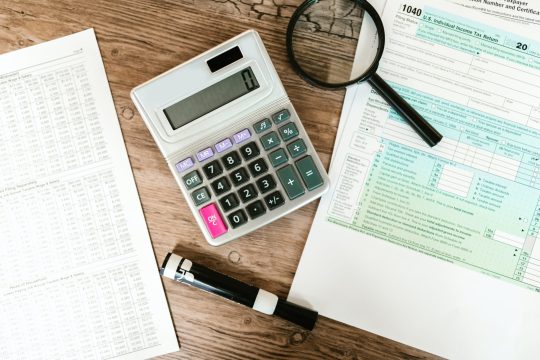
View On WordPress
0 notes
Text
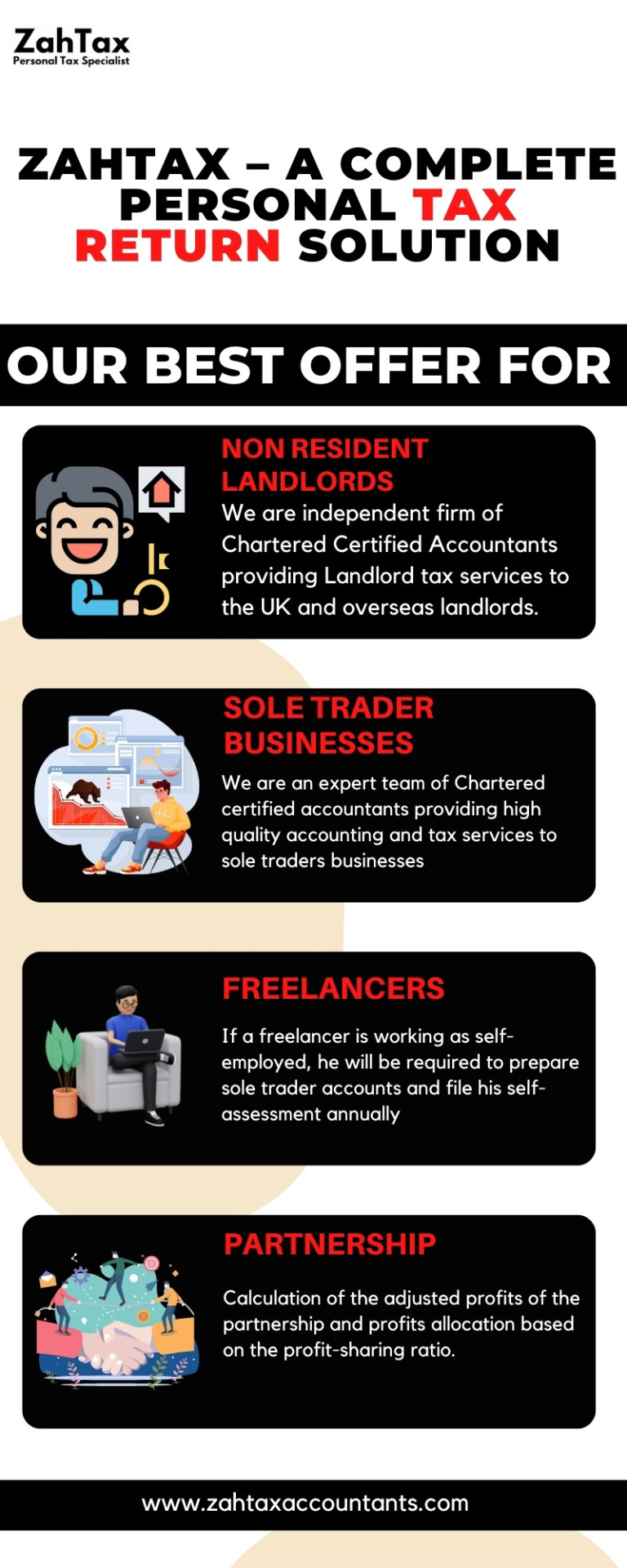
The self-assessment tax return is a unique type of form that allows people to complete their taxes in one simple step. Our tax return compliance service will allow you to complete and submit your self-assessment tax return on time, accurately and of a high standard.
#Self assessment tax return#Capital gains tax on property#Capital gains tax on shares#Landlord tax return#Accountant for Landlord
0 notes
Text
5 Good Reasons to Hire Expert And Reputed Tax Consultants
Are you an entrepreneur and run your own business? In that case, you must be the one who is the Jack of all trades. However, tackling every business aspect is never easy. Especially when it comes to tax filing one needs to be very conscious. However, looking into this critical matter is extremely time consuming. To save some, you can look for a professional Self Assessment Tax return accountant nearby you can help and guide you with all their knowledge and expertise.
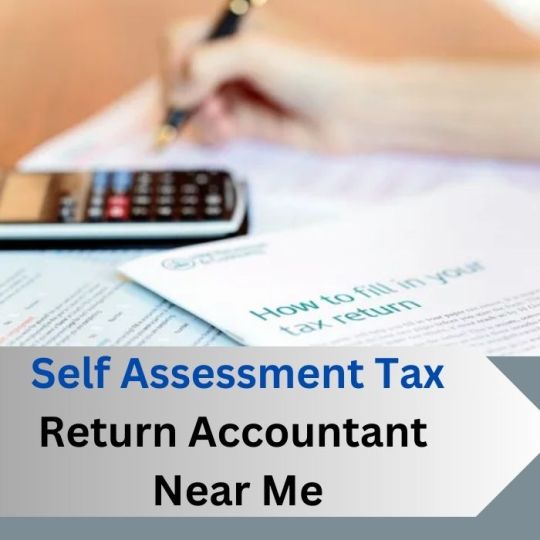
You must be aware of the fact that hiring an expert professional would never put your expectations down. There are several good reasons to hire them. Some of these are:
They Provide Expert Advice: As they are highly qualified and have years of experience, they naturally have adequate knowledge of every financial law, which enables them to provide you with concrete advice.
Helps You to Save Both Time and Money: To grow your connections and build your business effectively, hiring experts is very important for they solve issues faster which reduces the cost too.
Guides You in Tax Consulting: They are experts in dealing with Tax-Related Issues and shoulder the tax filing responsibility.
Assists You in Managing Your Business Finances Efficiently: Not only tax, but they also look after audits and other accounts-related matters.
Reduces Your Stress by Providing Assistance: Looking after the Finance Department is one of the major jobs in every organisation. Taking professional assistance in this regard reduces a lot of stress and burden.
The Final Say:
Hence, to handle your business finances better, contact the Professional Self Assessment Tax Return Accountant nearby. They are the experts and will help you to boost your business and enhance productivity. Schedule an appointment today to learn how they can help your business to grow.
1 note
·
View note
Text
UK Tax on Foreign Income | Specialist Tax Advisor Foreign Income
Do you need advice on UK Tax on Foreign Income? You can call our specialist international income tax accountants for advice & tax compliance.
0 notes